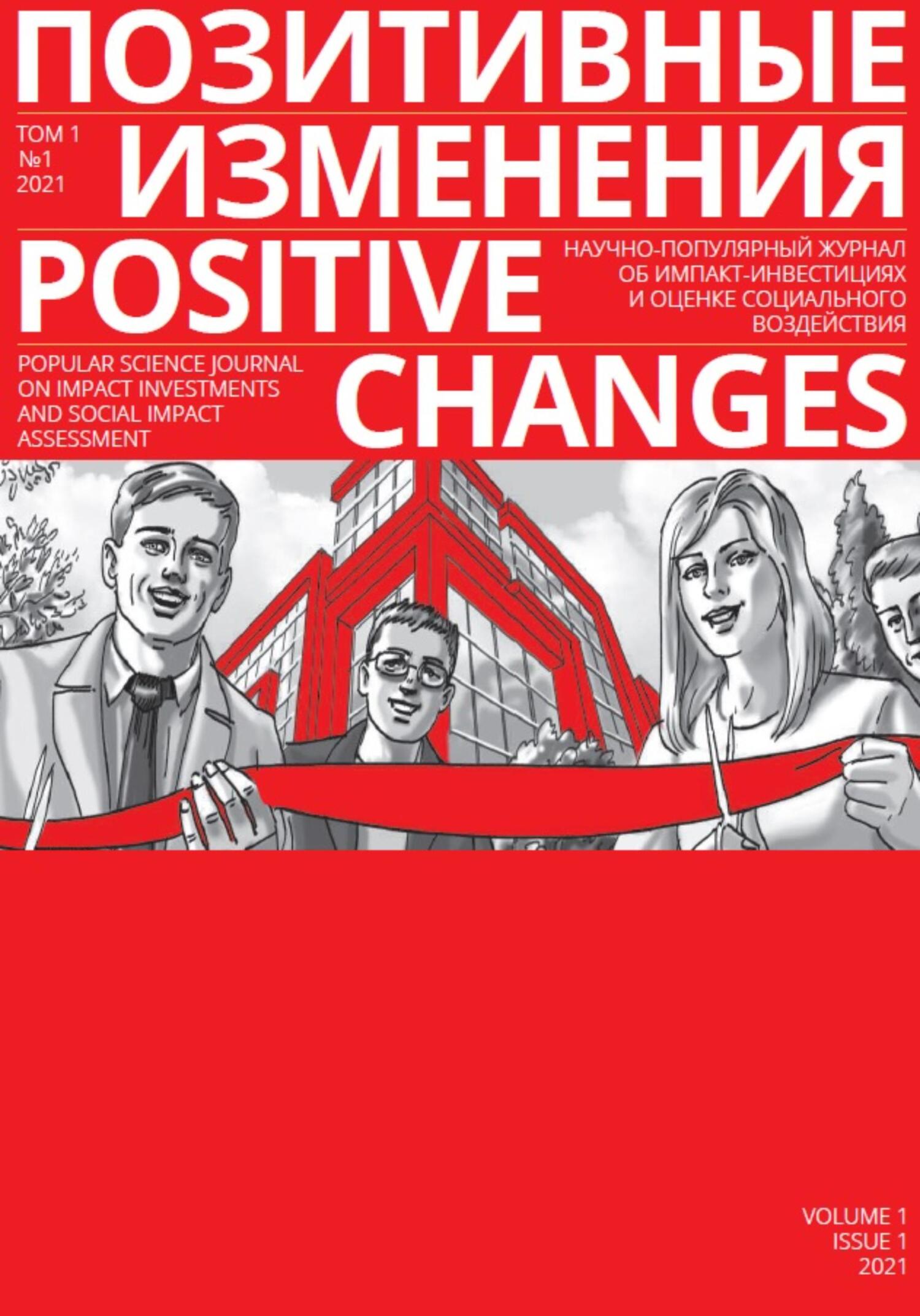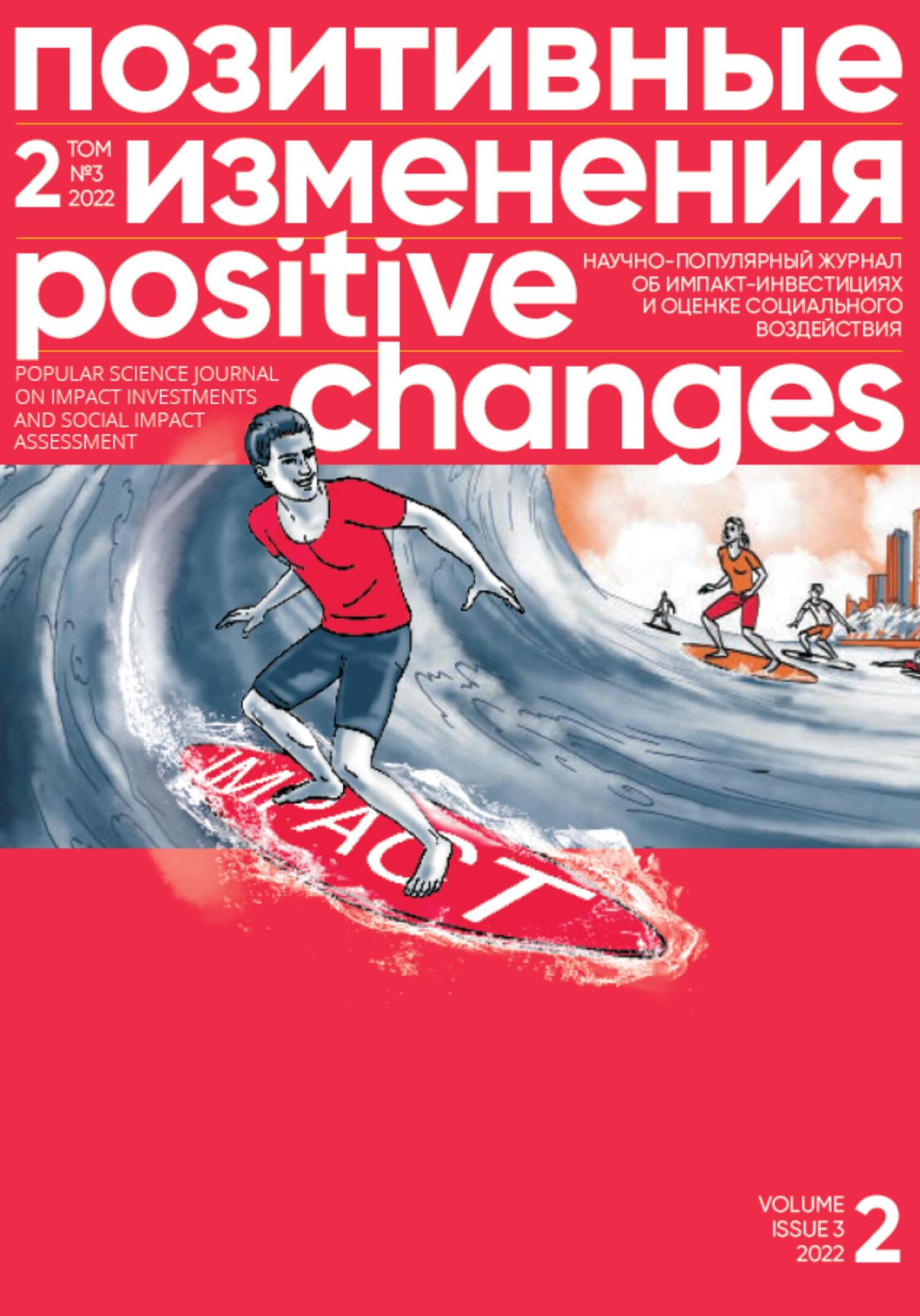that quantitative assessment when measuring impact raises many questions and is insufficient by itself. "In the work of the Timchenko Foundation, we do not tie grants only to the achievement of planned metrics (the Foundation introduced a monitoring and evaluation system in 2015). If metrics are too closely tied to funding, they can inadvertently provoke wishful thinking." Ksenia Frank notes that in areas such as social or environmental impact, the purely numerical equivalent of benefits can lead to a shift in focus: "We all know how to count «outputs»: number of classes held, manuals published and people who attended the class. Yet there is something much more difficult to assess and that very few people think about. That is what really has changed in the lives of these people and how stable these changes are."
Jioulnar Asfari agrees with the existence of an internal conflict between the known metrics of performance evaluation and, in fact, the impact evaluation. "The impact is such a semantic aspect, and its ‘birth place’ is the heart, and all the evidence is in the head. Therefore, it is important not to overdo it: the control and measurement system itself should not become a goal in itself. When we talk about impact, it is important to be able to see the effect of all indicators at the strategic level together." At the same time, Jioulnar Asfari notes, today the world market is beginning to form the impact evaluation standards necessary for public companies, there are indicators that can be measured and calculated, and the formation of a relevant evaluation system is, as a whole ring, a matter of time.
Ksenia Frank
Ekaterina Rybakova
MY FAVORITE IMPACT CASE
Ekaterina Rybakova: If we talk about the Rybakov Foundation's projects, it's difficult for me to choose. They include the University of Childhood and our course, which we developed together with The Higher School of Economics university as an evaluation and self-diagnostic tool for schools, as well as the school community «The School is the center of society». The course that we are now introducing into the curriculum of pedagogical universities is aimed at giving future teachers skills in community management, community building so that they can use them immediately in school.
Alexey Ryzhkov is sure that the metrics, in any case, are necessary for impact: "It is important that any sphere, any activity is viable in terms of metrology. It is important to develop criteria, it is important for society to coordinate them. It is important to use these criteria." At that Ryzhkov notes, along with universal criteria, there should be industry metrics. But they should be universal, relevant for all countries and activities — first of all.
However, everyone has no inherent optimism about the prospects for implementation of a single universal evaluation system. Ekaterina Rybakova believes that it will be extremely difficult to reach an agreement even at the level of one, single country. "In many ways, the question of preferences, what exactly you consider important for a certain sphere, plays a role here," she notes. Preferences — and, we add, the traditional "devil in details". "For example, one foundation states: we invested in the project — 300 children have been taught programming. My first question is: where are these children from? If these children played chess yesterday, and today you taught them programming, how much social effect is there? If yesterday they were drinking beer in the alleyway, and you brought them to the club, got them interested so they stayed, taught them programming and gave them a profession, then there is a real social effect", — says Ksenia Frank.
In general, experts agree: an evaluation is necessary despite all its complexity. "When you create an infrastructure project, it’s ‘a venture inside a venture'", Vladimir Smirnov says. "I know that a reasonable, conscious, social community will say that this is really needed. It is very necessary — a very cool project, which really works, helps, makes. For example, in Blagosfera Center, as in the most complex project, we count this. And the numbers are quite encouraging for us.
Vladimir Smirnov
MOVING DIRECTION
The broad scope of ‘impact investing' concept sets a predictably long running start for modeling the development paradigm. On the one hand, mainstream cases have already begun to appear on the Russian market. So, in 2020, the Towards Impact Investments accelerator was launched — the Impact Hub Moscow pilot project and the Navstrechu Peremenam Foundation, under which social projects for impact investment are selected and finalized. On the other hand, the current map of the domestic impact extends from internal social projects of large companies to models of public-private partnership and venture financing.
Thus, investors are increasingly ready to invest in the development of territories and communities and evaluate this activity as a kind of impact investment. There is potential in the sphere that will sooner or later begin to return not only with human capital, they believe. Many projects of the Rybakov Foundation are focused in this direction — About Women, About Children and others. "Community is a special relationship between people, where people are united by common values, a common working. It is being in the community that changes their lives and leads to those positive changes that begin first of all in thinking and then in actions, deeds, and quality of life."
At the same time, in the format of influence investments, public-private partnership projects are developing today, supported, in particular, by VEB (the Bank for Development and Foreign Economic Affairs). "VEB, as a development institution, has a whole direction that is dedicated to this — impact investments and impact projects," Elena Feoktistova says. In the first case, we are talking about financial participation in socially significant projects, in the second — about the creation of projects as such. "In fact, this is a private








